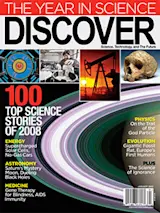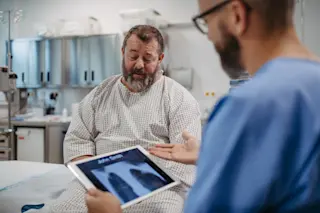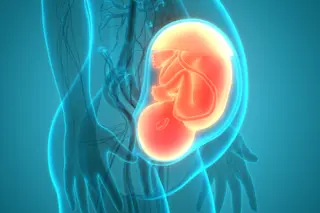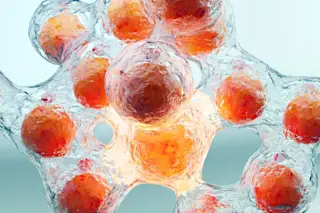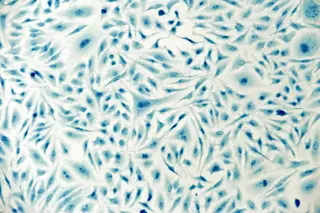By administering a combination of three genes, researchers have managed to convert one type of adult mouse cell into another type. The new approach builds on information gleaned from developmental studies of embryonic stem cells (see story #16) and one day may be used to create healthy replacements for harmed or diseased tissue.
Douglas Melton, codirector of the Harvard Stem Cell Institute in Cambridge, Massachusetts, and his colleagues study both the stem cells that develop into the pancreas and its insulin-producing cells and the genes that guide those cells’ development.
Instead of trying to coax stem cells to differentiate into pancreatic cells, Melton focused on identifying transcription factors, proteins that bind to DNA and turn genes on and off. He and his collaborators found that three transcription factors, when targeted to the pancreas of a living mouse, converted fully formed, non-insulin-producing pancreatic cells into cells that were functionally identical to ...


